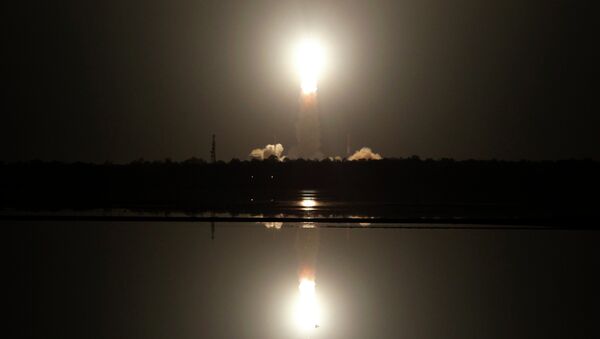New Delhi (Sputnik) — Indian Space Research Organization (ISRO) has decided to postpone the launch of its heaviest rocket GSLV Mk-III by a few months as it did not complete the necessary tests on time. The Geosynchronous Satellite Launch Vehicle (GSLV) was scheduled for launch on January 20.
"Subsequently, some more tests are planned for the vehicle and the stage level tests also got delayed. Now, these tests will be conducted this month. If any issues arise during the tests we will correct them," K Sivan, director, Vikram Sarabhai Space Centre (VSSC), told Deccan Chronicle.
The launch campaign for the first developmental flight of GSLV Mk-III began on September 29, 2016, at Satish Dhawan Space Centre (SDSC), Sriharikota. The rocket will deploy an indigenous communication satellite GSAT-19, weighing 3.3 tons and carrying Ka/ Ku band payloads.
"Simultaneously, ISRO is working towards increasing the payload capacity of GSLV Mk-III beyond four tons. The strategies identified to achieve the increased payload capacity include performance improvement of propulsion systems, inert mass optimization and miniaturization of avionics system," a government official told Sputnik.
India has mastered in lightweight satellite launch with the help of Polar Satellite Launch Vehicle (PSLV) which is capable of sending lightweight satellites into lower earth orbit.
Never miss a story again — sign up to our Telegram channel and we'll keep you up to speed!



